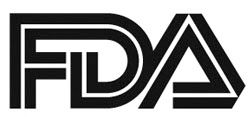FDA Extends Decision Date on Avapritinib in Fourth-Line GIST by 3 Months
The FDA has extended the Prescription Drug User Fee Act date by 3 months for the new drug application of avapritinib from February 14, 2020, to May 14, 2020, the manufacturer, Blueprint Medicines Corporation, announced in a news release. The NDA was seeking accelerated approval for the kinase inhibitor for the treatment of adults with fourth-line gastrointestinal stromal tumors.

The FDA has extended the Prescription Drug User Fee Act (PDUFA) date by 3 months for the new drug application (NDA) of avapritinib (Ayvakit) from February 14, 2020, to May 14, 2020, the manufacturer, Blueprint Medicines Corporation, announced in a news release.1The NDA was seeking accelerated approval for the kinase inhibitor for the treatment of adults with fourth-line gastrointestinal stromal tumors (GIST).
Previously, the FDA had requested top-line data from the ongoing phase III VOYAGER clinical trial (NCT03465722), which is comparing avapritinib to regorafenib in third- or fourth-line GIST, to inform the pending action on the NDA for fourth-line GIST. The manufacturer expects to provide the data early in the second quarter of 2020 to enable the FDA to act by the May 14, 2020 PDUFA date.
Blueprint Medicines also announced that the kinase inhibitor was added to the National Comprehensive Cancer Network’s Clinical Practice in Oncology for Soft Tissue Sarcoma as a recommended 2A treatment for patients with unresectable or metastatic GIST who harbor aPDGFRAexon 18 mutation, includingPDGFRAD842V mutations.1
TheFDA had approved the agent on January 9, 2020, for the treatment of adults with unresectable or metastatic GISTwho harbor platelet-derived growth factor receptor alpha (PDGFRA) exon 18 mutation, includingPDGFRAD842V mutations.2The approval marked the first precision medicine therapy for a genomically defined population of patients with GIST.
Avapritinib is a selective and potent inhibitor of KIT and PDGFRA mutant kinases. The type 1 inhibitor for GIST binds to the active kinase conformation from which mutantKITandPDGFRAsignal. The agent has demonstrated inhibition of a broad range ofKITandPDGFRAmutations associated with GIST, including potent clinical activity against activation loop mutations that are associated with resistance to currently approved therapies.
Results from the phase I NAVIGATOR trial (NCT02508532), which involved 43 patients withPDGFRAexon 18 mutations, led to the approval. Investigators reported that for patients harboring aPDGFRAexon 18 mutation, the overall response rate (ORR) was 84%, with 7% of patients experiencing a complete response (CR) and 77% having a partial response (PR).3
Patients withPDGFRAD842V mutations demonstrated an ORR of 89%, with 8% having a CR and 82% having a CR. Although the investigators reported that the median duration of response had not been reached, 61% of the responding patients with exon 18 mutations had a response lasting 6 months or longer. Among patients with an ongoing response, 31% were followed for less than 6 months.2,3
References
- Blueprint Medicines announces PDUFA date extension for new drug application of avapritinib for the treatment of adults with fourth-line gastrointestinal stromal tumor [news release]. Cambridge, Massachusetts: Blueprint Medicines Corporation; February 6, 2020. https://bit.ly/31wjpxX. Accessed February 6, 2020.
- FDA approves the first targeted therapy to treat a rare mutation in patients with gastrointestinal stromal tumors [news release]. January 9, 2020. https://bit.ly/383kwYk. Accessed February 6, 2020.
- Blueprint Medicines announces FDA approval of Ayvakit (avapritinib) for the treatment of adults with unresectable or metastatic PDGFRA exon 18 mutant gastrointestinal stromal tumor [news release]. January 9, 2020. https://bit.ly/31yDiUU. Accessed February 6, 2020.